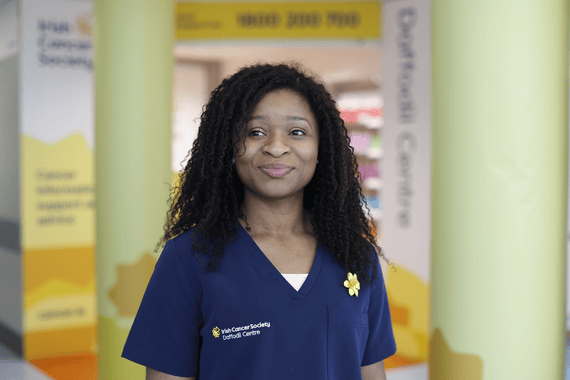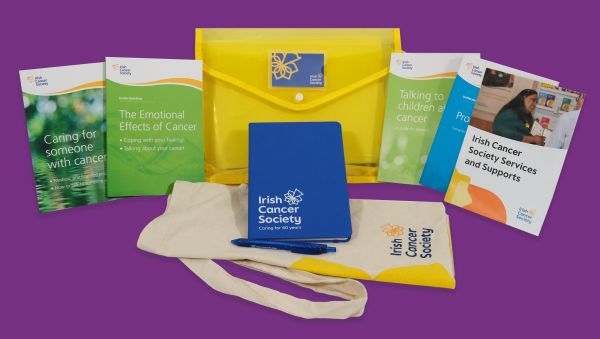Eye cancer
Diagnosis and tests
Diagnosing eye cancer
Your family doctor (GP) or optician will examine you and talk to you about your symptoms. If they are concerned, they will refer you to an eye specialist called an ophthalmologist. Tests you might have include:
The specialist eye doctor (ophthalmologist) will examine your eyes using different machines and instruments. For example, a bright light and a microscope that you look into, which can take photographs.
You will probably have drops put in to make it easier for the doctor to look into your eyes. You might have blurred vision after the drops so avoid driving for 4 to 6 hours afterwards.
Passing a probe over your closed eyelid and the surface of your eye to take pictures of the tissues.
Injecting a dye which can show up the blood vessels in your eye on a photograph.
Taking a sample of cells with a fine needle and looking at them under a microscope to see if they contain cancer.

If you are diagnosed with eye cancer, we're here for you.
Our cancer nurses are here if you need information or just want to talk. They can help you to understand your diagnosis and what to expect, send you information and tell you about our services.
Waiting for test results
While some results may come back quickly, others may take a few weeks. Waiting for results can be an anxious time. It may help to talk things over with your doctor or nurse or with a relative or close friend. You can also call our Support Line on 1800 200 700 or visit a Daffodil Centre to speak to a cancer nurse.
What are the stages of eye cancer?
Staging means finding out how big the cancer is and if it has spread to other parts of your body. Staging will help your doctor to plan the best treatment for you.
The staging system normally used in eye cancer is called TNM.
This stands for:
- Tumour (T): How big is the tumour?
- Node (N): Is there cancer in your lymph nodes?
- Metastasis (M): Has the cancer has spread to other parts of your body?
Your doctor often uses this information to give your cancer a number stage – from 1 to 4.
A higher number means a more advanced cancer.
Your doctor may use a different staging system, depending on the type of eye cancer you have.
Knowing the stage of your cancer helps your team to plan the best treatment for you.
Continue reading about eye cancer




Get help & support

Support Line
Free support pack

